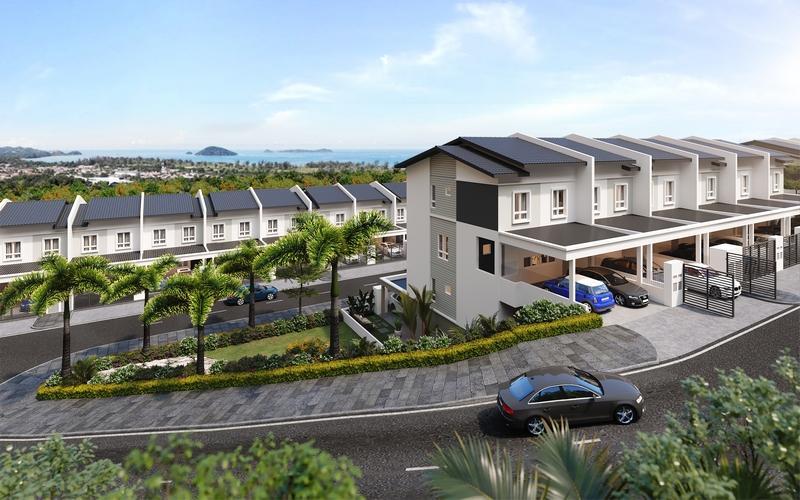After the dust has settled, the general consensus for Budget 2020 is that there are many indirect benefits to the property sector when compared to last year’s.
It is undeniable that next year’s Budget has fewer direct goodies for the property sector, but those who have been attuned to the market are well aware that sometimes, an indirect approach can better serve the sector.
While certain aspects like the perpetual Real Property Gains Tax (RPGT) of 5% has remained, much to the chagrin of property owners, there was an alteration to dampen its effect.
The revision of the base year of acquisition for the RPGT from Jan 1, 2000 to Jan 1, 2013 will soften its impact. How this will ultimately affect the sub-sale market remains to be seen.
It cannot be denied that the perpetual RPGT’s continued application will be a concern for investors and other stakeholders in the property value chain.
While not property-centric, Budget 2020 has nevertheless given developers, home seekers and other industry stakeholders some good tidings, said Syarikat Ong managing partner Agnes Ong.
For the direct impacts, attention given to first-time homebuyers as well as younger home purchasers are seen as positive moves by the government to help these groups of buyers, she said.
In an interview prior to the recent ‘Moving into 2020 with Budget 2020’ forum, organised by Syarikat Ong and co-organised by StarProperty and KPMG, she said next year’s budget was an improvement from the current one.
While 2020 will see Home Ownership Campaign, a much-needed step in restoring confidence in mid-range housing as well as the residential sector as a whole, come to a close, the Budget does have some “goodies” for next year’s buyers.
The rent-to-own allocations, as well as the extension of the Youth Housing Scheme to next year, will serve to ease the burden on the B40 segment as well as younger home purchasers, she said.
While there is mixed feelings on the “face-lift” provisions such as allowances to repair and refurbish low and medium-cost strata public housing, as well as the Safe City Initiative, on a whole, it does generate a “feel good” position for the property market, Wong said.
Several property experts, including Wong, had some concerns: Whether low and medium-cost strata public housing residents or tenants will come to expect this repair and refurbishment provision as regular handouts.
And that some of these properties have become vice dens so the question is whether there will be a clean up of the premises before the repairs and refurbishment are initiated.
On the positive side, the provisions will upgrade these run-down premises, which in turn will increase their value as well as those properties sited in their vicinity.
Other provisions that will impact on the property market is education funding and Labour-centric provisions and reform, along with macroeconomic boosters. “Budget 2020’s focus on education, including funds to upgrade existing schools with new ones to be built in Langkawi, Kulai, Hulu Langat, Putrajaya, Pasir Gudang, Tumpat, Marang and Johor Bahru is good news for surrounding properties,” said a property expert.
The labour-centric provisions and reform, as well as macroeconomic boosters will raise overall income for Malaysians, tackling affordability from the bottom up, he said.
“However, this is a long-term play which will take time to impact home seekers,” he added.
The indirect measures impacting properties outside of the cities include the infrastructure provisions such as discounts and abolishment of tolls along Plus highways, Wong pointed out.
In addition, the introduction of electric buses in some cities and petrol subsidies across the board, would facilitate and improve connectivity, will have a secondary effect on property close to these initiatives, she added.
The allocation of RM10bil for rent-to-own schemes for first-time home seekers is a step in the right direction, she said. Previously, the alternative financing platform to help home seekers with the upfront costs of purchasing a property was offered by one bank but the scheme has been opened to other financial institutions, making it more accessible, she said.
The government’s push for digitisation with Budget 2020, will accelerate Malaysia’s growth and per-capita incomes, said BT & Associates partner Bernard Tan, one of the experts who spoke at the forum.
“Digitisation will mean orderly systems, order and inventory systems, and so on, that owners can control better,” he told StarProperty.
Malaysian Entreprenuers’ Development Association treasurer Jack Yau said big data will play an important role in this new age, even for the service industry.
KPMG executive director David Soh agreed, pointing out that the big corporations and government authorities were already utilising big data.
“It’s something you can’t run away from,” he said.
The takeaway from the SME session of the forum is that enterprises have to allow for innovative ideas when they take in fresh graduates as this will pave the way forward for the businesses.
This will lessen the impact of the projected increase in redundancy as allowing more fresh graduates to enter the workforce will bring in a new set of buyers when they stabilise their finances. And with a higher and more stable salary, the younger generation will be able to make that leap into buying their first home.
.jpeg)
.jpg)
_PH_Banner_(Desktop)(1200x180px).png)

.jpg)




.jpg)
.jpg)
.png)

.jpg)
.jpeg)
